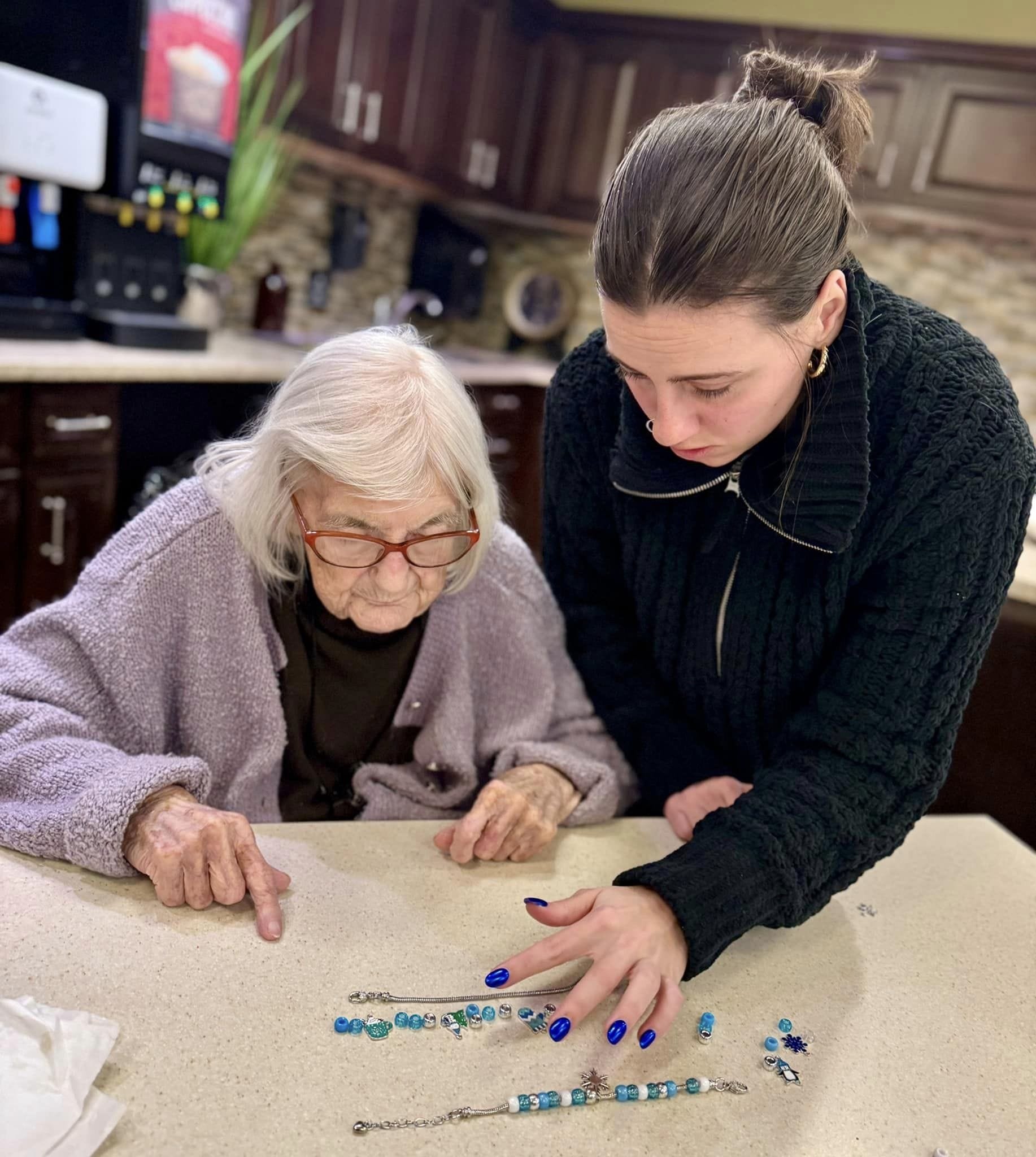Thoughtful Alzheimer's Look after Your Loved Ones
Recognizing the psychological and psychological needs of people affected by this problem is extremely important in boosting their high quality of life. As we explore the different strategies and strategies that can change caregiving into a more compassionate experience, it becomes clear that the journey is as much concerning the caretaker as it is regarding the individual with Alzheimer's.
Comprehending Alzheimer's Illness
Alzheimer's illness is a progressive neurodegenerative problem that primarily impacts cognitive feature, leading to amnesia, impaired thinking, and changes in behavior. It is one of the most common form of dementia, making up 60-80% of all cases. The illness normally manifests in individuals aged 65 and older, although early-onset Alzheimer's can happen in younger individuals.
The pathophysiology of Alzheimer's involves the buildup of amyloid plaques and neurofibrillary tangles in the mind, resulting in neuronal deterioration and synaptic loss. These adjustments interrupt interaction between brain cells, considerably harming cognitive abilities and everyday functioning. Early symptoms might include difficulty remembering current occasions and difficulties in problem-solving, which can rise to disorientation and trouble with language.
As the disease advancements, individuals might display extensive memory deficits, confusion regarding time and location, and difficulty acknowledging enjoyed ones. Behavioral changes, consisting of withdrawal, anxiety, and agitation, might additionally occur. Comprehending the clinical progression of Alzheimer's is essential for caregivers and health care companies, as it informs reliable administration approaches and interventions customized to the needs of people affected by this debilitating condition.
The Importance of Compassionate Treatment
Caring treatment is vital in supporting individuals with Alzheimer's illness, as it dramatically improves their lifestyle. This strategy focuses on the emotional and psychological health of patients, cultivating an environment that promotes respect, self-respect, and understanding. People with Alzheimer's frequently experience irritation, anxiety, and confusion, which can be relieved through thoughtful interactions.
Empathy in caregiving not just helps in identifying the unique demands of each person however also strengthens the caregiver-patient partnership. When caregivers approach their roles with concern, they develop a secure area where clients feel valued and understood, which can reduce behavioral obstacles related to the disease. This supportive environment encourages better interaction and involvement, facilitating a much more reliable feedback to the care supplied.
Moreover, caring treatment expands beyond the client; it also includes assistance for households. Caregivers who practice compassion are more geared up to address the emotional concern faced by enjoyed ones, supplying reassurance and assistance with a tough journey. Inevitably, the relevance of thoughtful treatment hinges on its capacity to transform the caregiving experience, causing improved results for both people with Alzheimer's and their households.
Practical Caregiving Techniques
Efficient caregiving for individuals with Alzheimer's condition requires sensible techniques that address the special obstacles presented by the problem. One of the foremost approaches is developing a constant everyday regimen, which can supply framework and knowledge, reducing stress and anxiety for both the caregiver and the individual. Caretakers must likewise streamline jobs by damaging them down right into smaller sized, workable steps, therefore enhancing the individual's sense of success and reducing frustration.
Interaction is one more critical facet; caregivers should make use of clear, basic language and maintain eye contact to foster understanding. Making use of aesthetic signs, such as tags or photos, can even more help understanding and navigation in the environment.
Safety and security is vital. Adapting the living area to eliminate risks-- such as safeguarding rugs or installing grab bars-- can help avoid crashes. In addition, caretakers should encourage self-reliance by allowing people this hyperlink to engage in acquainted activities, which can strengthen self-esteem and promote wellness.
Psychological Assistance Methods
Emotional well-being is a vital component of care for people with Alzheimer's disease, as it straight impacts their quality of life. Alzheimers Care Charlotte. Supplying psychological support methods can significantly boost their everyday experiences and promote a complacency and belonging
One efficient method is active listening, which entails providing full attention to the individual, recognizing their feelings, and reacting with compassion. This method aids the person feel valued and understood, reducing sensations of seclusion or irritation. Furthermore, making use of validation treatment can be advantageous; as opposed to fixing false impressions, caretakers can verify the person's experiences and emotions, promoting a relaxing setting.
Involving in reminiscence therapy is another effective technique, permitting individuals to share feelings, memories, and tales associated with their past. This not only stimulates cognitive function however additionally reinforces emotional connections. Incorporating acquainted music or art can likewise stimulate favorable emotions and stimulate happy communications.
Furthermore, guaranteeing normal physical touch, such as holding hands or gentle hugs, can offer comfort and peace of mind, reinforcing emotional bonds. These strategies, when continually applied, can create a nurturing environment that sustains the psychological health and wellness of individuals with Alzheimer's, boosting their overall well-being.
Producing a Helpful Environment

To start with, take into consideration the physical format of the space. Clutter-free locations, familiar furnishings plans, and well-defined paths can reduce confusion and advertise mobility. Making use of calming shades and ample lights can additionally enhance the ambience, making it a lot more welcoming and less frightening.
Second of all, uniformity is important. Maintaining a foreseeable day-to-day routine helps individuals with Alzheimer's feeling a lot more safe. Familiar activities, regular dish times, and arranged social communications can significantly lower anxiousness and disorientation.
Additionally, sensory elements play a vital duty. Including acquainted aromas, songs, and tactile objects can evoke positive memories and promote involvement. Individualizing the area with cherished photos and significant things can also helpful hints foster a sense of identification.
Final Thought
Thoughtful Alzheimer's treatment considerably improves the quality of life for individuals affected by this dynamic disease. By focusing on emotional health and applying effective caregiving techniques, caretakers can foster an atmosphere that advertises self-respect and belonging. Techniques such as energetic listening and developing constant regimens offer to ease anxiety while enhancing the caregiver-patient relationship. Eventually, this method not just gives necessary comfort and support yet also encourages individuals to navigate the intricacies of Alzheimer's with dignity and poise.
As we check out the different methods and techniques that can change caregiving right into a much more compassionate experience, it ends up being clear that the trip is as much regarding the caregiver as it is regarding the private with Alzheimer's.

Caring treatment is crucial in sustaining individuals with Alzheimer's illness, as it dramatically boosts their quality of life - Alzheimers Care Charlotte. Inevitably, the relevance of thoughtful treatment exists in its ability to transform the caregiving experience, leading to boosted end results for both people with Alzheimer's and their families
Thoughtful Alzheimer's care substantially improves the top quality of life for people influenced by this dynamic condition.
Comments on “Thoughtful Teams Supplying Relied On Alzheimers Care Charlotte Options”